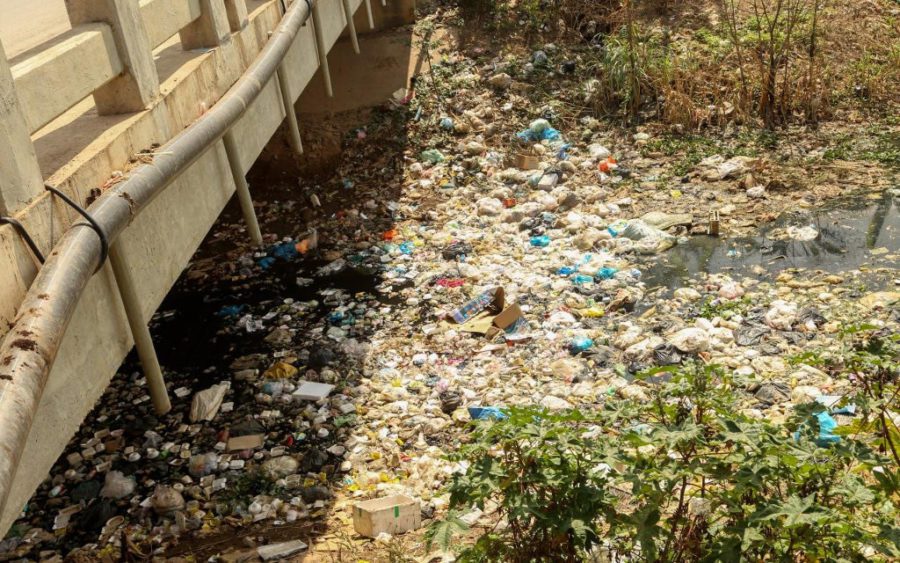Residents in a Kandal commune say it’s been five years since trash collection was stopped in their area — so people are using the local stream as a dumpsite, and it’s killing fish, making them sick and spoiling farmland.
Stench rises from Sampov Puon commune’s Ta Kong stream, in Kandal province’s Koh Thom district, with piles of trash in plastic bags filling up the waterway.
A coffee vendor near the Ta Kong bridge, Sin Tha, said people still try to use boats on the stream, but it takes them two to three days to move enough garbage out of the way in order to pass.
Nearby residents have to deal with bad odors every day, Tha added.
“It smells bad, and for people who farm, if it flows into their land, it will be finished,” he said.
He said he and other villagers were willing to pay for trash collection, and wanted authorities to intervene.
“I want a truck to come every two days to pick it up — we’ll tie it up in black bags in a tidy way and throw it in the truck. We can negotiate the costs,” he said.
Another resident, Pich Sarin, said the problem was getting worse.
“It causes the stench, damage to the surrounding environment, it affects children, causes itching, brings mosquitoes and makes the water dirty,” Sarin said.
Tha, Sarin and other residents said fish were gone and replaced by plastic bags. They said they’ve had no place to properly dispose of their garbage for five years now. Vendors at Koh Teav market nearby also simply dump their trash into the water, they said.
Sampov Puon commune chief Ouk Srun acknowledged the problem, and said authorities were working to resolve it as soon as possible.
They used to have trucks collecting trash and a dumpsite, but the site would get flooded every rainy season and needed to be closed, Srun said.
Authorities were working on reimplementing a proper system, including having sanitation trucks, a dumpsite and education for people about how to put out their trash properly, he said.
“First they have to place it in a plastic bag, then put them in any temporary place. For a price, we will intervene to have a garbage collector,” Srun said.
Waste management remains a challenge in much of the country, with those in the sector saying the country produces 10,000 tons of trash a day.
Waste management in Phnom Penh is also currently in the process of reform, with the state temporarily taking over the management of long-time service provider Cintri. Its services are set to be split up among three to four companies.
(Translated and edited from the original article on VOD Khmer)













